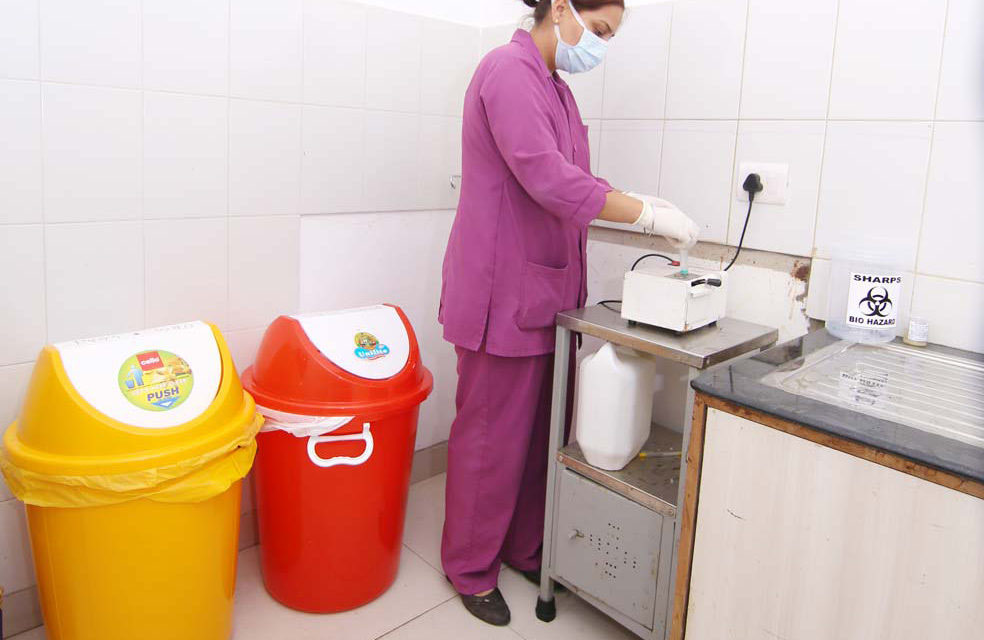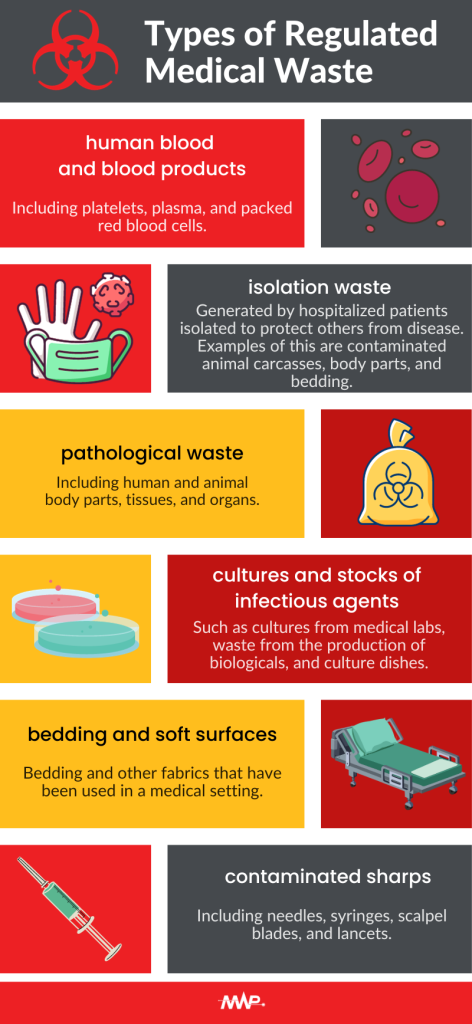Streamlined Medical Waste Disposal Services: Top Priority for Public Health
Streamlined Medical Waste Disposal Services: Top Priority for Public Health
Blog Article
Navigating Medical Waste Disposal: Necessary Services for Health Care Facilities
In the intricate landscape of healthcare operations, the administration of clinical waste is a vital facet that requires meticulous focus. Health care centers, whether tiny facilities or huge hospitals, are delegated with the duty of handling, treating, and disposing of a large selection of clinical waste streams. The intricacies associated with browsing via the regulatory needs, making certain correct waste partition, and implementing safe collection and transportation procedures are paramount. Understanding the important services that support clinical garbage disposal is not just a matter of compliance however additionally a basic part in safeguarding public health and wellness and environmental health. The intricacies of this procedure are crucial for health care facilities, and the experience used in this realm plays a pivotal duty in preserving the integrity of medical care systems.
Regulatory Compliance Assistance
For healthcare centers, making certain regulatory conformity assistance is crucial to keep correct handling and disposal of clinical waste. By partnering with governing compliance experts, health care facilities can stay up-to-date on developing guidelines, alleviate risks connected with improper waste disposal, and eventually contribute to a more secure and much more sustainable setting for all.
Waste Segregation Assistance

Health care facilities need to offer clear standards and training to staff on how to set apart waste efficiently. This consists of separating general waste from hazardous products such as sharps, transmittable waste, pharmaceuticals, and chemical waste. Color-coded containers, labels, and signs are commonly used to help in waste segregation methods. Routine audits and monitoring of waste partition processes are necessary to recognize any kind of problems and make necessary renovations.
Collection and Transportation Providers

Proper collection and transportation solutions are important parts of the clinical waste disposal procedure in healthcare centers. These solutions guarantee that unsafe products are dealt with safely and in compliance with guidelines to shield both the setting and public health and wellness. Health care facilities count on specialized waste monitoring companies to supply reliable collection and transportation solutions tailored to their needs.
Clinical waste collection includes segregating different kinds of waste at the point of generation, utilizing color-coded containers or bags to identify in between general, harmful, pharmaceutical, and other waste streams. Once collected, the waste is transported in specialized cars furnished to manage unsafe materials securely.
Treatment and Disposal Solutions
In the world of medical waste disposal for medical care centers, after the crucial stage of collection and transport services, the focus shifts in the direction of executing reliable treatment and disposal services. Treatment options typically involve procedures such as autoclaving, which uses vapor under stress to sterilize the waste. This method is typically utilized for transmittable waste that should be made non-hazardous prior to disposal. One more widespread treatment technique is incineration, where waste undergoes heats in regulated setups to minimize its volume and eliminate virus.
Disposal remedies encompass the last action in the clinical waste administration process. Facilities may go with land fill disposal, where treated waste is thoroughly deposited in assigned locations. Medical Waste Disposal Services. Conversely, medical care centers image source can select to use waste-to-energy centers, which blaze waste to create electrical power. Recycling and source healing are also getting grip as lasting disposal choices for specific kinds of medical waste products.
Reliable therapy and disposal solutions are critical in ensuring compliance with laws and protecting public health and wellness and the atmosphere. Healthcare centers should very carefully assess and choose proper techniques that straighten with their waste monitoring goals and sustainability campaigns.
Team Training and Education And Learning

To properly take care of medical waste disposal in health care facilities, detailed personnel training and education play an important function in guaranteeing adherence to governing needs and maintaining a safe atmosphere. Proper training gears up team with the knowledge and skills required to manage various kinds of medical waste, segregate them correctly, and package them firmly for disposal. By informing workers on the dangers linked with incorrect handling of clinical waste, centers can decrease the possibility of mishaps, contamination, and regulatory infractions.

Final Thought
In conclusion, healthcare facilities count on crucial medical waste disposal services to make certain regulatory compliance, appropriate waste segregation, risk-free collection and transport, efficient therapy and disposal, in addition to team training and education. These solutions play a vital function in maintaining the health and wellness of both healthcare workers and the public, highlighting the significance of visite site proper monitoring of clinical waste in health care setups.
For healthcare facilities, ensuring regulative compliance support is vital to preserve proper handling and disposal of medical waste. Waste segregation involves categorizing various kinds of clinical waste to make sure appropriate handling, therapy, and disposal. This includes separating basic waste from unsafe products such as sharps, transmittable waste, drugs, and chemical waste.Clinical waste collection involves setting apart different types of waste at the factor of generation, making use of color-coded containers or bags to distinguish between general, unsafe, pharmaceutical, and various other waste streams.In the realm of clinical waste disposal for medical care centers, after the vital stage of collection and transport solutions, the focus changes towards executing effective therapy and disposal services.
Report this page